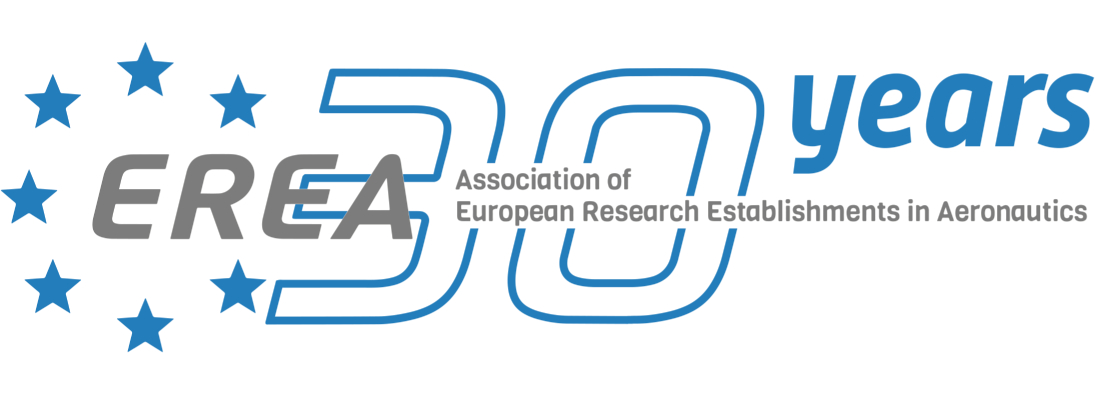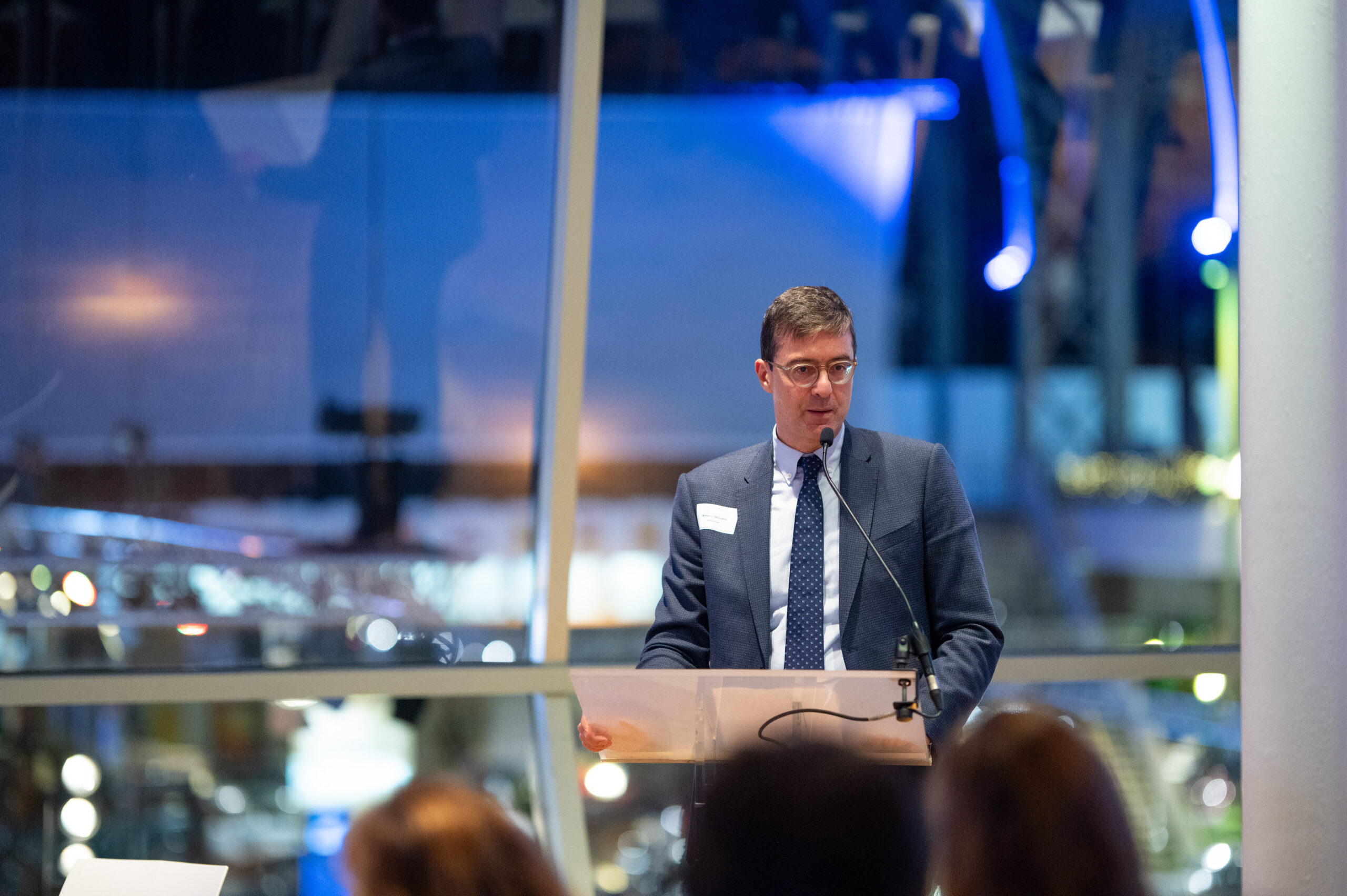- What are your plans for the next 2 years as EREA Chairman?
The 2 years of my chairmanship of EREA begin in the year that EREA celebrates 30 years of existence, but also in a very interesting period in Europe from a social and political point of view. We are in a decisive and challenging phase of European research and innovation dedicated to aviation: Horizon Europe is still ongoing, discussions on the new Framework Programme 10 are starting, and all the stakeholders are defining their approaches and positions. Moreover, the political system is changing, with new Commissioners and European Parliament members, and a possible shift in political priorities.
Within the current Horizon Europe Programme many collaborative research projects with EREA participation are already producing relevant new results; an example is the IMOTHEP project that will deliver a roadmap for future research and development needs for Hybrid Electric Propulsion (HEP).
Clean Aviation (CA) phase 1 projects have been launched and we are now entering the preparation of the 2nd phase with demonstration selections and an update to the Strategic Research and Innovation Agenda (SRIA). EREA is providing wide support and intends to play a significant role in the demonstration phase of CA, guided by the goals of the ACARE “Fly the Green Deal” vision for aviation. The adoption of new energy concepts, like hydrogen, electric and hybrid-electric propulsion, etc., will most likely introduce new technologies and aircraft configurations.
The SESAR 3 partnership is developing both exploratory research and technologies for market uptake to manage the air traffic of conventional aircraft, drones, air taxis and vehicles flying at higher altitudes than conventional aircraft, transforming the air traffic management in Europe by becoming more and more digital, efficient and sustainable. Advanced Air Mobility concepts are considered as new airspace needs for U-space development is required. EREA members, also in SESAR, are playing a fundamental role and will support it, in both long-term research and demonstration projects.
The foundations of the next European Research and Innovation (R&I) framework programme, as well as the next European Defence Fund (EDF), are already being discussed and important decisions need to be made under the pressure of the current international scenario. EREA will continue playing a crucial role in the Research, Development and Technology (RTD) cycle bridging the gap from basic research to market uptake of innovative technologies into commercial products. The role of Research Establishments (REs) in the RTD-cycle of innovative technologies through all the steps from conception to maturation, validation, and demonstration is essential.
Upgrading existing facilities, the definition and realisation of new ones, to respond to new aviation challenges is also a goal for EREA: and doing it together, when possible and needed, is a big plus!
Thus, EREA will continue to play its role as a catalyser, by cooperating with all European stakeholders, to contribute, in a balanced way, to the full RTD cycle in order to ensure innovation for the short and medium term, but without leaving gaps in preparing for the long term.
- How will EREA celebrate its 30th anniversary this year?
This year, EREA is celebrating 30 years from the signature of the Association, and we plan to mark this milestone with increasing communication presence to highlight EREA activities over the years, its fundamental role in the full life-cycle of the European RTD & Innovation process, including its worldwide unique experimental capabilities both for ground and in-flight demonstration.
An additional effort will be dedicated to organizing specific events towards aviation stakeholders, as well as events addressing EREA members and their researchers, supporting collaboration, exchanges and networking among young researchers, promoting mobility and opportunities for collaborative research and infrastructures, but also to attract young people towards aviation education and careers.
My personal ambition is to strengthen the competences of European regions as a strong basis and support for the common European policy framework.
- What are your thoughts about EREA’s impact and about the future of aviation?
As already mentioned, we are in a transition phase and Europe is setting the foundations for big changes both in society and technology. Nowadays, aviation is playing a fundamental role, both at an economic level, by being a global leading market, and in society, by allowing connections all around the world for both leisure and business, including a large market for cargo. Aviation is expected to be a growing market, becoming, even more than today, a vital transport mode; impacting positively on society; continuing on the path that will lead aviation to be more and more climate neutral by adopting new radical technologies.
EREA is working in the full RTD cycle to ensure innovation for the short and medium term but without leaving gaps for the long term. The renewed Future Sky programme of EREA is matching this approach. Europe needs to grow a young generation of researchers and specialists projected towards the new radical technologies needed for the future. New disciplines, new multidisciplinary approaches and a European education are the key to grow a critical mass of researchers. Indeed, multi-disciplinarity and technology transfer, from and towards other sectors, will be key within the new digitalized world for all transport modes. Advanced Air Mobility, circularity, new propulsion led disruptive concepts for aviation are hot topics today and direct links to other sectors are vital for implementing a seamless transport focusing on user needs and social acceptance.
EREA and its members are contributing to building the future, together with all the other stakeholders, in the perspective to “fly the green deal”. The growing numbers in aviation shows the crucial importance of this economic sector, and the exploration and validation of new technologies are the challenges that EREA will face and overcome.
As a European, I think that these new frontiers of aviation need a strong support from citizens and the new Parliament and Commission; it is fundamental that European assets, in terms of research capabilities, technologies, technological facilities and experimental airplanes are continuously developed and pushed to the leading edge of competitiveness.
“It is possible to fly without motors, but not without knowledge and skill” Wilbur Wright said: knowledge and skill that are exactly our bread and butter! So, for the next years we will go on with this sentence in mind to achieve our goals!


